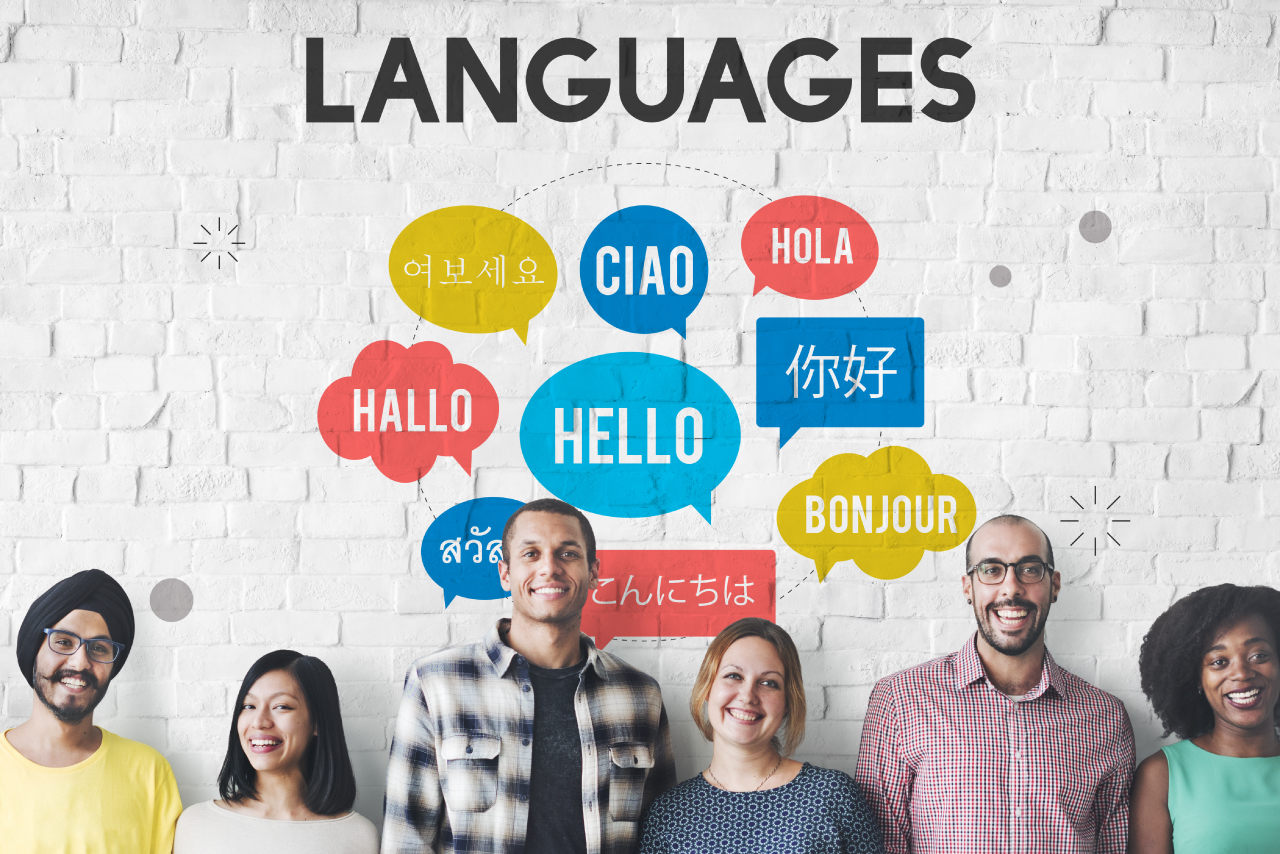The Importance of Multilingual Skills in the Tech Industry: What It Means for Your Career

"The limits of my language mean the limits of my world." - Ludwig Wittgenstein
In an era defined by globalisation and digital connectivity, the tech industry is uniquely positioned at the intersection of linguistic diversity and innovation. This transformative wave is shaping how we connect, communicate, and collaborate.
Let’s face it, no industry has gone as wide and global as the tech industry. As the world becomes increasingly interconnected, the importance of multilingualism in this thriving industry cannot be overstated. Whether you're looking to break into a global tech company or expand your influence within a multicultural team, understanding the value of language proficiency can open doors that once felt out of reach.
A Workforce That's Diverse, Inclusive and Multilingual
Today’s global tech organisations are built on a rich tapestry of linguistic backgrounds, cultures, and ideas. As companies expand beyond their home markets, professionals who speak more than one language are becoming more sought after than ever.
For you, this shift means new opportunities:
- Communicate confidently with international colleagues and clients
- Contribute to truly inclusive, cross-functional teams
- Stand out to global employers who value linguistic diversity
Imagine walking into a multilingual team meeting and seamlessly switching between English and your home language to build rapport, troubleshoot faster, and contribute meaningfully. That’s the future of work and it’s already here.
Why Being Multilingual Sets You Apart
When it comes to professional development, multilingual individuals bring more to the table than communication skills.
Penn State research found that multilingual people have advantages over monolinguals in certain mental abilities, such as editing out irrelevant information and focusing on important information, which makes them adept at prioritising tasks and working on multiple projects at once.
Being multilingual helps you:
- Bridge cultural gaps
- Navigate complex global markets
- Translate customer needs into innovative solutions
It also enhances your cognitive flexibility, making you a more agile, innovative contributor in any team. And when you can express your ideas clearly in your native language or understand someone else’s better, collaboration becomes not just possible, but powerful.
The multinational corporation Siemens acknowledges this significance and states, "Language diversity is a key enabler for innovation. Different languages come with different ways of thinking."
Moreover, multilingual professionals can dig deeper into global trends and insights. By navigating different language communities and keeping up with the latest developments, they can tap into a wealth of knowledge that monolingual professionals might miss. This expanded knowledge base is a catalyst for creativity and breakthroughs in the tech industry.
Seizing global opportunities
Major cities like London, Toronto, Singapore, and Mumbai are multilingual hotspots, and so are the tech hubs emerging across Europe, Asia, Africa, and the Americas. These global markets need talent that can operate across linguistic boundaries.
“Business, employment, and scholarship are increasingly global and multilingual, and citizens of the 21st century need a new range of skills and strategies to supplement their core language learning skills.”
- Cambridge Assessment English Perspectives
Multilingualism equips tech professionals and businesses to tap into global opportunities. With the ability to communicate across linguistic boundaries, companies can expand their operations to emerging markets, reach untapped user bases, and unlock new revenue streams.
Google, for instance, offers its products and services in over 100 languages, ensuring its global dominance by adapting to local contexts and attracting users worldwide.
With language proficiency, you can:
- Compete for international roles
- Build better relationships with global clients and stakeholders
- Position yourself as a culturally aware, business-ready professional
Redefining Customer Service to a whole new level with your language skills
In an increasingly customer-centric tech landscape, providing exceptional user experiences and responsive customer support is something that you cannot afford to miss.
When customers can communicate in their preferred language, they feel more comfortable and understood. This leads to improved customer satisfaction and loyalty.
Multilingual customer service representatives can address enquiries, concerns, and issues more effectively, reducing misunderstandings and friction. This ultimately leads to better customer retention and a positive brand reputation.
As a multilingual professional, you can:
- Resolve issues faster
- Reduce misunderstandings
- Build stronger customer relationships
- Boost your employer’s reputation for global accessibility
Amazon, for instance, offers customer service in multiple languages, prioritising linguistic accessibility and customer satisfaction on a global scale.
This ability to connect is especially powerful in roles like Sales Development, Account Management, and Support, where language skills often translate directly into performance and growth.
Your Next Career Move Starts with a Language Advantage
As the tech industry continues to shape our interconnected future, embracing your linguistic background is one of the smartest ways to future-proof your career.
Being multilingual isn’t just about words; it’s about mindset. It means you’re ready to think globally, work inclusively, and innovate across borders.
So whether you speak two languages or six, your skills are in demand. Employers are actively hiring professionals who can bring diverse voices and perspectives into their teams.














